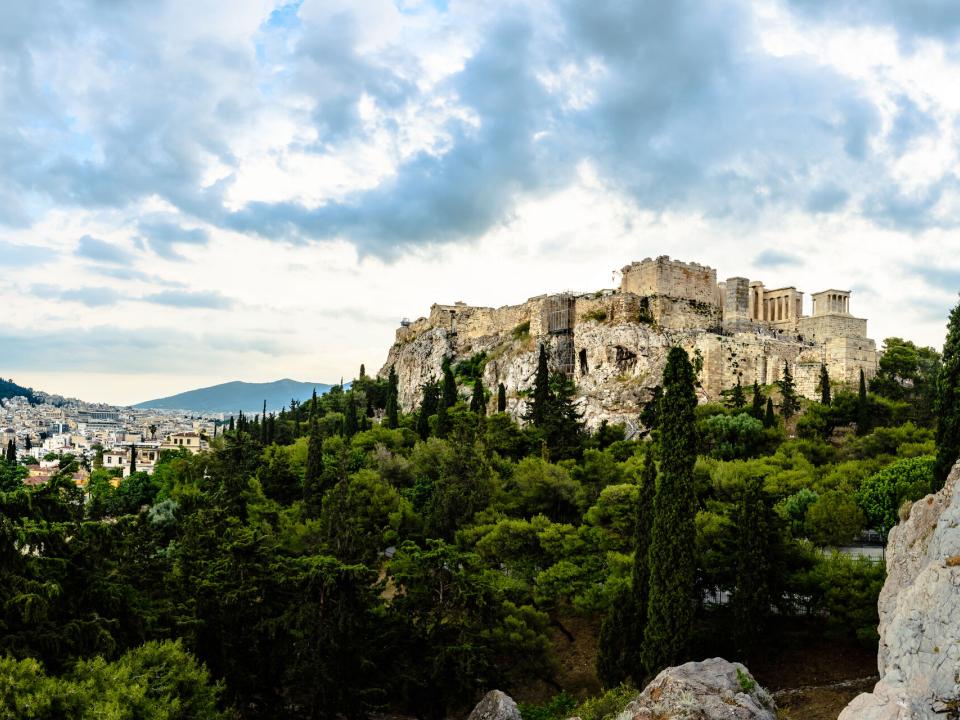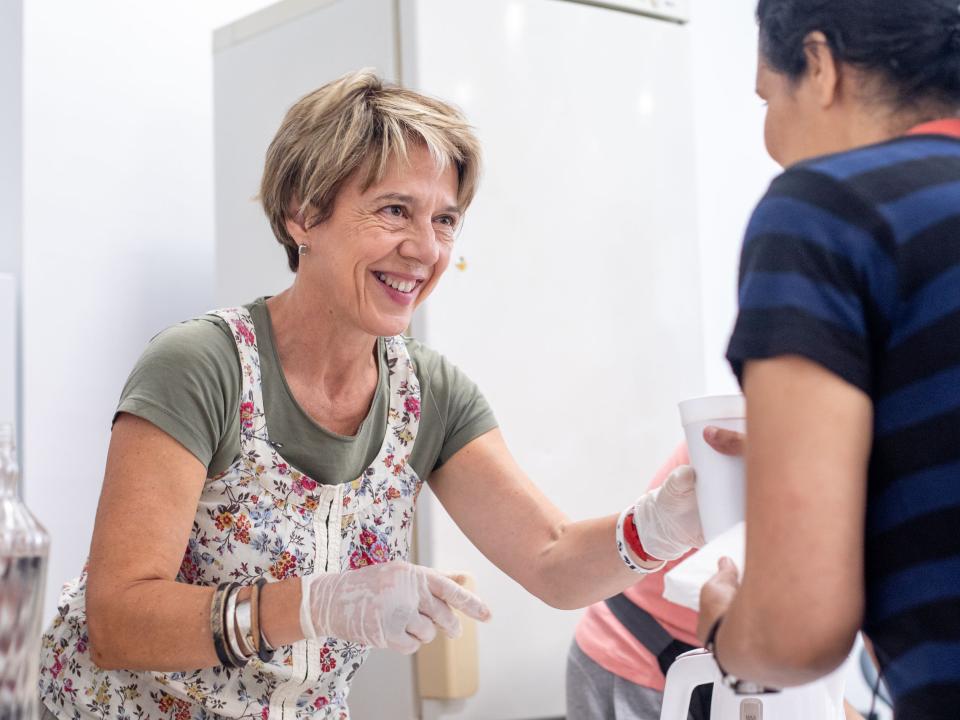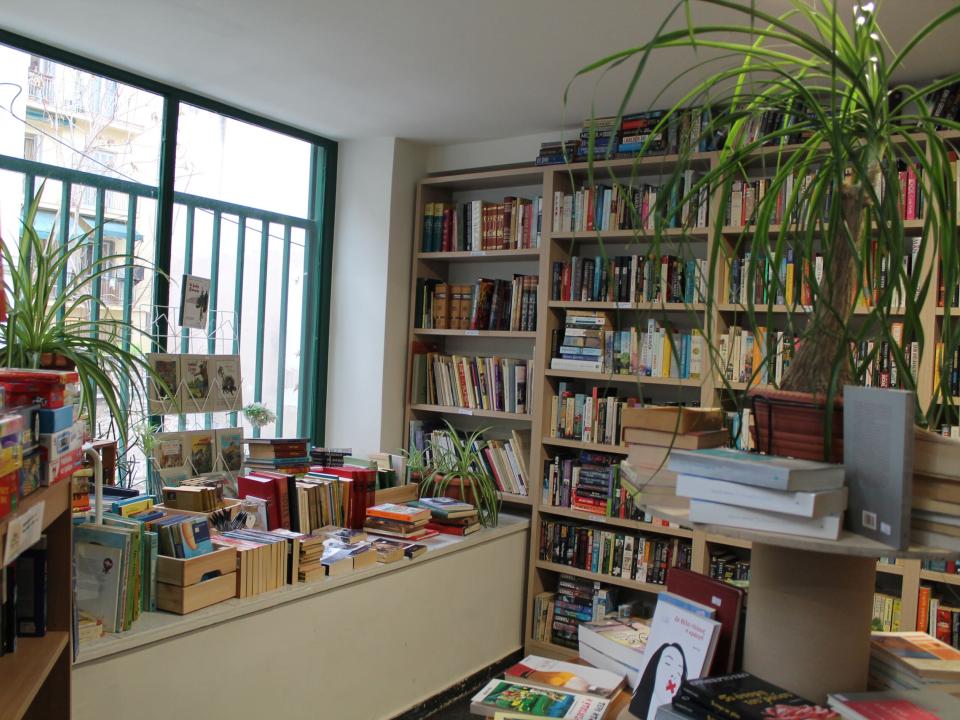Kreikka
United communities of believers reflecting Christ in the world
Greece is a country in Southern Europe with a population of 11 million people. Greece was the first European country to hear the gospel, when Paul set foot in Northern Greece around the year 49 AD. Officially 98 percent of the population is part of the Greek Orthodox Church. Only 0.3 percent of the Greeks are Protestant. It is generally assumed that to be Greek is to be Greek Orthodox. But nowadays, more and more people are rejecting their orthodox roots and turn to atheism or new age practices.
As a result of the financial crisis in 2008, the Greek economy went into recession and it still has a hard time recovering. Especially for young Greeks it is extremely difficult to find a job.
OM Greece partners with several Greek Evangelical and immigrant churches and Christian organisations to support their on-going ministries. The team is serving Christian communities with youth work, discipleship and ministry to prostitutes, refugees and people from Muslim backgrounds.
Unofficially OM has been passing through Greece long before there was an established team, while smuggling Bibles from Finland through the East Block. Officially OM Greece (Hellas) started in Larissa in 1999. Six years later, in 2005, the first home office was started in Athens and the founding of OM Greece, with the statutes and board, was official in 2008. In 2017 OM became an independent field with its own structure and policies.
OM Greece vision statement:
“Our vision is to see united communities of believers reflecting Christ in the world.”
OM Greece mission statement:
“Supporting the local church to witness Christ locally and globally.”
Ministry opportunities in Greece:
· Church-based Mercy Ministries: We support ministries such as youth discipleship, meal sharing with the homeless, clothing distribution, and other outreach events.
· Justice Ministries: We support and partner with local ministries, such as House of Damaris, Nea Zoi and Threads of Hope, which work amongst women and men who are victims of human trafficking and sexual exploitation in the region. For more information visit:
· United to Impact: United to Impact is a ministry community that seeks to build networks and platforms for Christians in Athens to grow deeper in both their faith and their passions to bring impact to their communities. For more information visit:
https://www.facebook.com/UnitedtoImpact/
· Refugee Ministry: We are serving directly in camps through local ministry centres and churches and we are also supporting the work of the Greek Evangelical churches in other cities as they reach out to refugees in their area.
How can you get involved?
PRAY
Pray that the Holy Spirit will move through the Greek Evangelical Church and that God will revive the missional spirit of the Church.
Pray for the work amongst the immigrants and refugees and that we and our partners are able to water and nourish the planted seeds of the gospel until the time that these people leave Greece.
Pray for Orthodox people in Greece to start seeking the living God and relationship with Him instead of empty religiousness.
GIVE
Donate here to support the work of OM in Greece http://www.om.org/en/give/donate
GO
See job opportunities listed at
http://www.om.org/en/opportunities
Contact us
https://www.facebook.com/OMHellas/
More information about Greece
Population and area: Greece is 80 percent mountainous, has 1400 islands and the tenth longest coastline in the world. Being at the edge of Europe, Greek culture has a strong Eastern influence which is also due to the Ottoman rule from 1453 until 1829.
Greeks are proud of their heritage from the ancient Greek civilization and the country has 17 UNESCO World Heritage Sites.
Economy: Tourism and shipping are major sectors of the economy.
Religion: Greece was the first European country to hear the gospel; Paul journeyed to cities like Philippi, Thessaloniki, Athens and Corinth. The Greek state is defined as Eastern Orthodox by its constitution. Whilst 98 percent of the Greeks are officially Orthodox, about 15 percent of those call themselves atheists and only 2 percent go to church regularly. Just 0.3 percent of the population belongs to the evangelical churches. Many small towns, villages and islands have little or no evangelical witness. There is an increasing Muslim population with the growing refugee population.
Culture: Greece is an EU member and a relatively affluent and materialistic society where image and status are very important. The current severe economic crisis has raised awareness of financial, moral and spiritual needs and hit the vulnerable in the society especially hard. Despite some changes, the role of the family is still strong. Largely mono-cultural in the past, modern Greece is becoming more multicultural and the younger generation is open to external influences.


